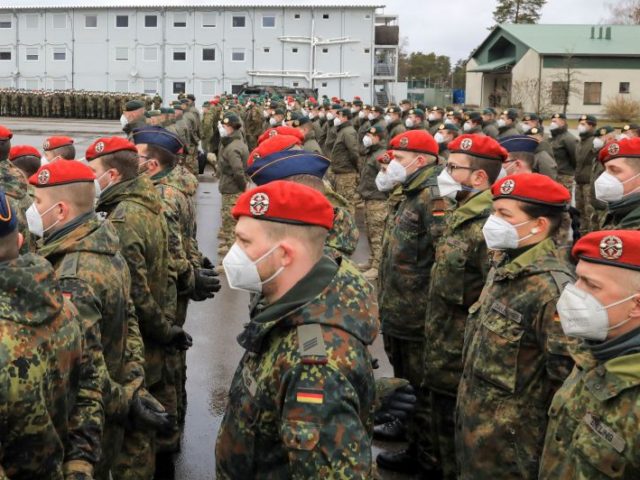Germany’s Defence Ministry has declined to comment after the press learnt on Thursday that around 700 of the missiles they planned to send to Ukraine were found to be so old they had become inoperable.
Berlin had planned to send Ukraine 2,700 ‘Strela’ rockets dating back to the German Communist era, as part of the weapons package Germany had prepared to help Kyiv fend off the Russian invasion, but at least 700 have been revealed to be defective, with the boxes they’re stored in being described as “mouldy”.
The rockets had initially been designed for use by the National People’s Army of the Soviet-controlled German Democratic Republic (GDR), which ceased to exist in 1990, following the liberation of East Germany from communist rule.
A classified military document that was leaked by Spiegel magazine reported per The Telegraph has said that: “Owing to the obsolescence of the rocket motor, the Strela missile is no longer safe to handle, so it can no longer be fired”. As a result of neglect, small cracks had formed on the rockets, which led to corrosion.
The German army, known as the Bundeswehr, have not used the GDR’s weapons since 2014 citing “security reasons”, and since then the wooden boxes holding the missiles have rotted and become covered in mould – to the extent that soldiers are only allowed to enter the rooms storing the rockets if they wear protective clothing, German magazine Focus reports.
The Bundeswehr has suggested that the reason for the Strela rockets’ poor condition was as a consequence of not being able to secure a contract with specialist storage companies, but the German Defence Ministry has however not yet released a statement on this matter.
Of the maximum of 2,000 rockets that are still combat-ready, it has been reported that the Bundeswehr no longer have the handpieces that are needed to fire the ordinance, with the German military hoping the Ukrainians have access to them or they may not be able to use the shoulder-fired missiles.
Germany had initially declined to send lethal aid to Ukraine, U-turning on their decision on the 28th of February as a result of international pressure, which marked a historic shift from the central-European nation as they reversed a policy preventing them from sending weapons to active war zones that had been in place since the Second World War.
Before Russia’s invasion of Ukraine, Germany had provided 5,000 helmets to Kyiv, a move that was widely mocked by some as poor even as a token gesture.
Following the decision to send arms to Ukraine, Germany also committed to spending at least 2 per cent of its GDP on defence spending, which means it will finally meet its NATO defence spending requirements, a policy that former U.S. President Donald Trump pushed for throughout his premiership.
“From now on, more than 2 per cent of our GDP will be invested in our defence”, German Chancellor Olaf Scholz announced, which will equate to an additional €100 billion ($109 billion) in 2022’s budget for the Bundeswehr.
After much reluctance, Germany also blocked the approval process for Nord Stream 2, the 764 mile-long natural gas pipeline that would connect Russia and Germany – worth €10 billion – which former President Trump had warned against suggesting that it would leave Germany and other European Union member states as “captives” of Russian President Vladimir Putin.

COMMENTS
Please let us know if you're having issues with commenting.